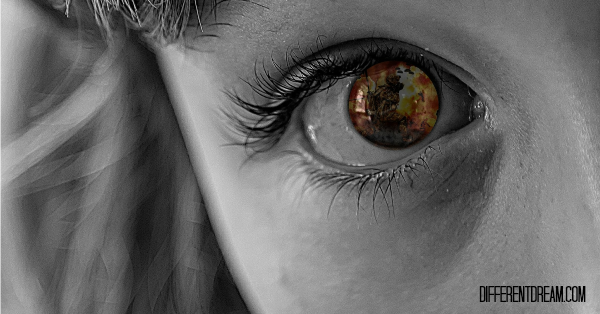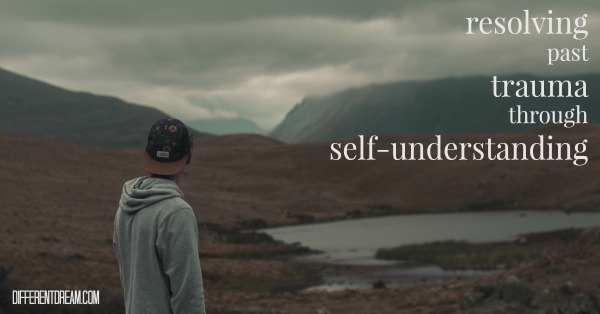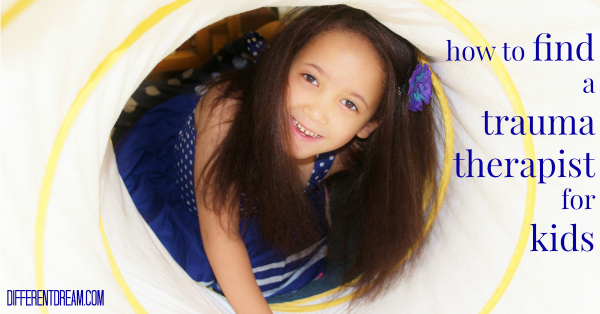Parent PTSD: When You Can’t Put Special Needs Behind You

Parent PTSD?
Again?
Shouldn’t that horse be dead by now?
How I wish the answer to the last question was yes. Unfortunately, much as I wish the parent PTSD horse was dead, it is not. In fact, the more interaction I have with parents, of kids with special needs and the more I read about the subject, the more I realize, this nasty horse is alive and kicking.
The realization resurfaced recently when a friend sent a link to an article titled The Pastor’s PTSD: When you can’t bounce back after the conflict is over. As you can see from the title, the article is about pastors, not parents of kids with special needs. But with a few minor substitutions (change “pastors” to “parents” and “church conflict” to “raising kids with special needs”), the information it contains is interchangeable in remarkable ways.
Parent PTSD Symptoms
First, the symptoms described are interchangeable.
- Dreams and flashbacks, two intrusive symptoms common to parents of kids who’ve experienced invasive medical trauma or accidents.
- Constant alert, an arousal symptom that surfaces in parents when something (like a dream or flashback) triggers a memory of something traumatic related to their child’s care, throwing parents into a state of hyper-alert of hyper-arousal.
- Avoidance and self-protection, a natural response to the “dangers” spotted by someone on constant alert.
Parent PTSD Treatment
Many of the treatments suggested were similar, too.
- Learn to lament. For parents, this means grieving the loss of dreams for children with special needs and grieving again when age peers reach developmental and life milestones your child has not yet or may never reach.
- Forgiveness. We have to forgive ourselves and release shame, bitterness, and guilt associated with our child’s special needs. And many of us have to forgive God for his plans for our children, which are much different than were our plans.
- Patience. Especially toward a spouse who may process grief and the trauma experience differently.
- Friendship. We need to build long-lasting friendships with encouraging people who understand what we are experiencing.
- Re-engage. Special needs families often become very isolated because caregiving demands are great and taking a child with special needs into the community can be a major task. But at some point we must re-engage with the bigger world, for the good of our mental health and to create a support system for our kids.
- Solitude and retreat. Getting away can be very hard for parents in special needs families. After all, no one can care for our kids like we can. Even so, we must get away now and then, for our own good and for the good of our kids. So take advantage of respite when possible. And while cultivating friendships and re-engaging with the world, train others to care for your child, too.
Finally, seek professional help. Find a counselor with trauma training who can help you process your parent PTSD. Information about locating counselors can be found in this post, 4 Reasons Traumatized Kids Need Healthy Parents, and in my book, Does My Child Have PTSD? What To Do When Your Child Is Hurting from the Inside Out.
Your Parent PTSD Questions or Comments
If you have questions about what you read or comments, please leave them in the box below. If you’d prefer more privacy, click on the comment box and send your question or comment in an email. I’ll get back to you as soon as possible.
Do you like what you see at DifferentDream.com? You can receive more great content by subscribing to the quarterly Different Dream newsletter and signing up for the daily RSS feed delivered to your email inbox. You can sign up for the first in the pop up box and the second at the bottom of this page.
By Jolene
Jolene Philo is the author of the Different Dream series for parents of kids with special needs. She speaks at parenting and special needs conferences around the country. She’s also the creator and host of the Different Dream website. Sharing Love Abundantly With Special Needs Families: The 5 Love Languages® for Parents Raising Children with Disabilities, which she co-authored with Dr. Gary Chapman, was released in August of 2019 and is available at local bookstores, their bookstore website, and at Amazon.
4 Comments
Submit a Comment
Subscribe for Updates from Jolene
Related Posts
Resolving Past Trauma from the Inside Out Through Therapy
Do you need more than self-help books for resolving past trauma in your life. This post provides resources about effective treatments.
Resolving Past Trauma from the Inside Out Through Self-Understanding
Resolving past trauma can help parents break the cycle of negative attachment from one generation to the next. This post explains how self-reflection helps in resolving past trauma.
How To Find a Trauma Therapist for Kids
These 7 steps can help parents find trauma therapists for kids in their care. It’s not as hard as you might think.






Missy, you hit the nail on the head with that comment. Thanks! Jolene
Janet, the behaviors you described certainly could result in parental PTSD. I hope you are receiving some professional help to deal with this reoccurring trauma in your life. Jolene
I know I have a form of PTSD. Mine comes from all that you wrote, but also my daughter is very aggressive towards me. I’ve been kicked hard, bitten, my hair pulled out by the roots, scratched & a miriad of other things. Thanks for the article. Nice job.
A great reminder parents of special needs kids have to also take care of themselves body, heart , and mind . Thank you